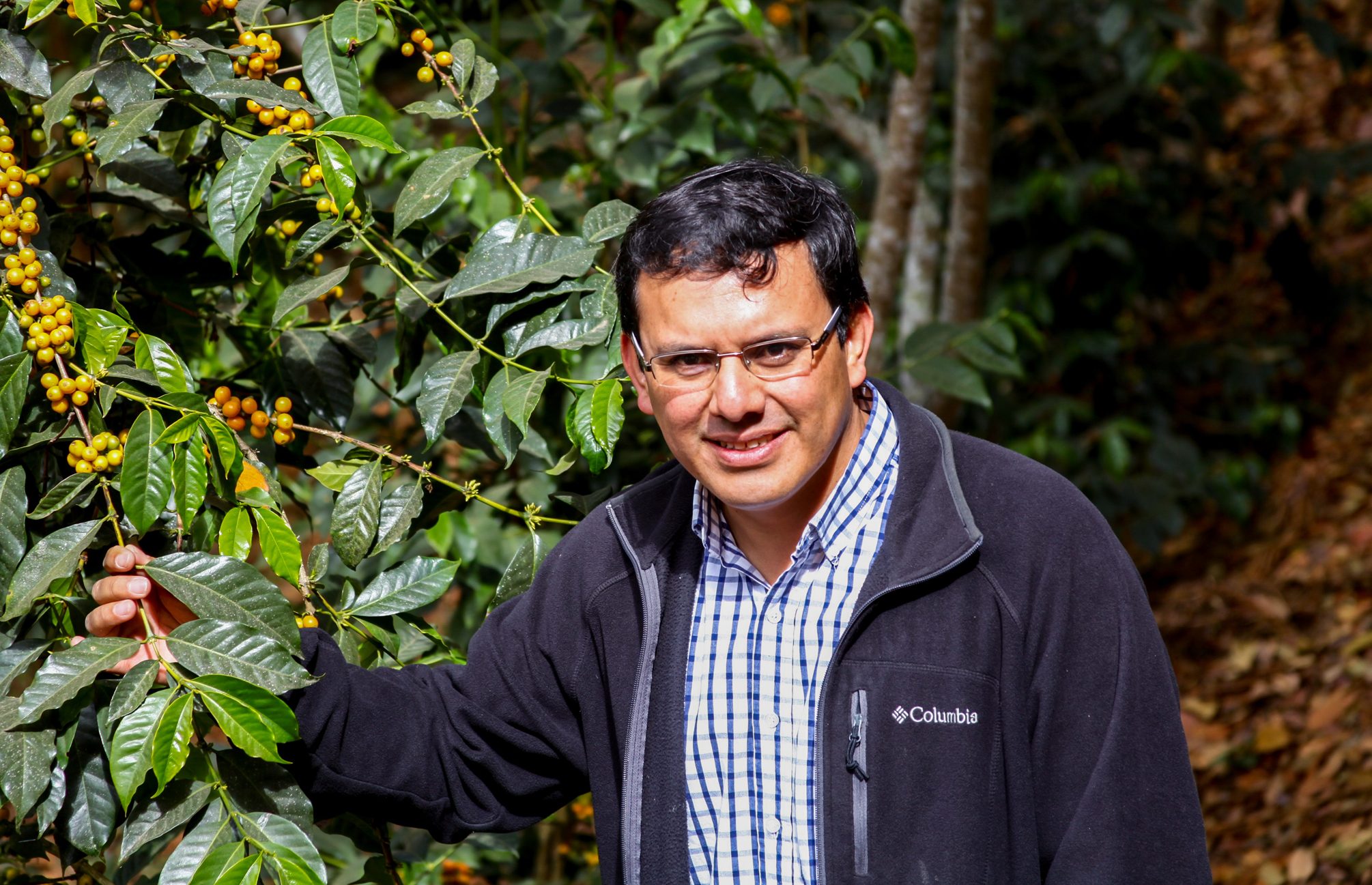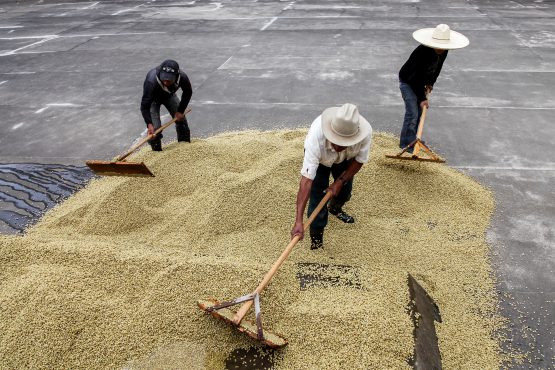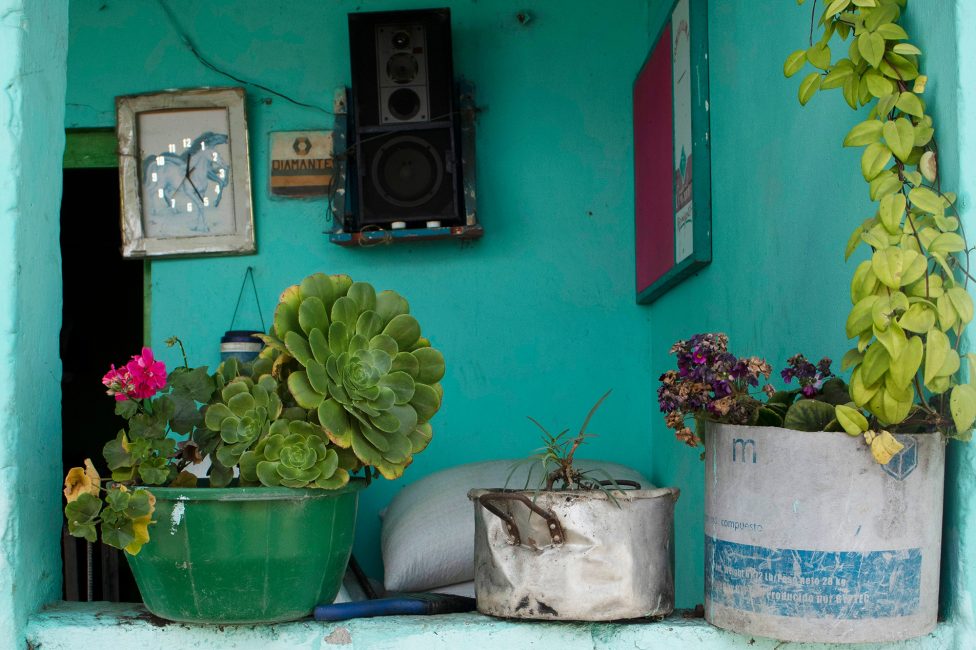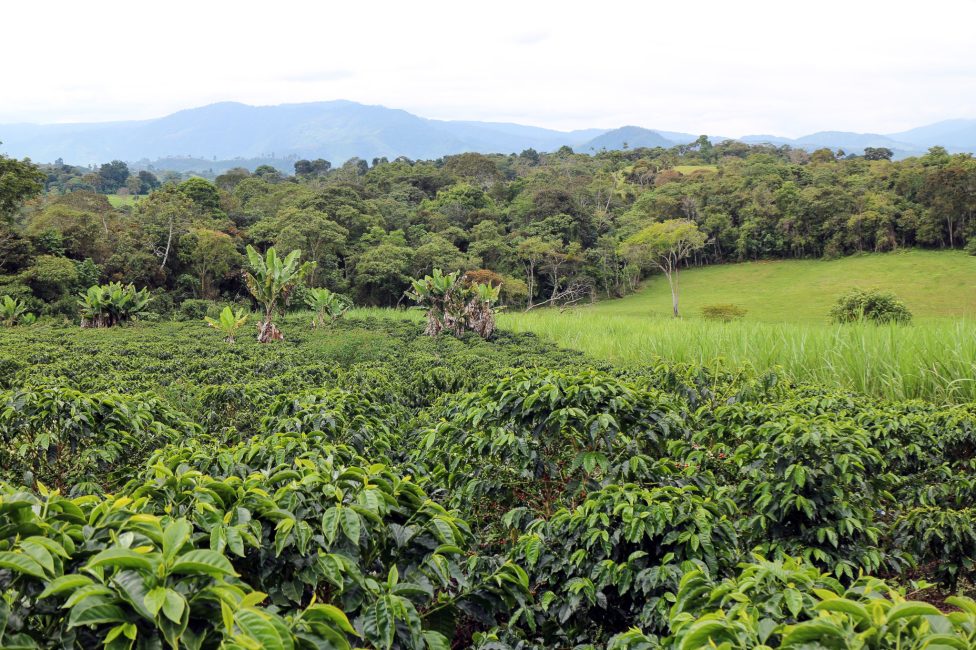El Pilar
Floral, elegant and refined, with a butterscotch sweetness, orange acidity, creamy mouthfeel and notes of wild berries, dark chocolate and black tea.
Finca El Pilar is a beautiful farm that sits high in the hills just outside the town of San Juan Sacatepequez, located north west of Guatemala City. Although not far from Guatemala City, the drive up to the farm follows dusty, rough roads through a multitude of indigenous villages.
The farm itself is large and stretches across just over 2,000 hectares; however, the area under coffee only extends across 80 hectares at a prime coffee-growing altitude of 1,500 to 2,000 meters. The rest of the land is under forest and milpa (traditional indigenous corn fields), which are cared for by and feed the local community.
El Pilar is managed by Juan Carlos Chen, who we have been lucky enough to spend time with on our visits to Guatemala each year. Juan is an accountant by training, but married into coffee (his wife’s father owns the farm), and 7 years ago decided to leave his corporate career behind and become a coffee farmer. El Pilar was a gifted to Juan by father-in-law, who acquired the farm in 1982 and entrusted it to Juan in 2012.
Juan is an incredibly ernest and humble man, and, since taking over the management of El Pilar, he has worked hard to transform the farm into a productive, quality focused farm and in doing so has increased the volume of production from 200 to 1000 bags in just 3 years, effectively increasing the yield five times!
El Pilar’s history extends back to the early 17th century, and coffee has been farmed here since the late 1800s. Although the farm was largely abandoned when Juan gained control of it, some of the farm’s Typica trees are a testament to this long history. Covering an area of about 18 hectares, these 60+ year old trees are incredibly tall, requiring pickers to use ladders to harvest the cherries. The rest of the farm is planted with Red Bourbon, and a very small parcel is also dedicated to Yellow Bourbon.
Juan does not use any herbicides, at El Pilar preferring instead to allow the Gravillea, Cuje and Ecualyptus trees to provide a lush, dry covering around the trees. He manages soil health very closely, testing it regularly to ensure the optimum conditions for great quality coffee are upheld. Up until last year El Pilar was fully organic, however the event of leaf rust (which has affected all farms in Central America) has meant that some fungicides must be used, but Juan uses these very sparingly.
Juan employees 20 people full time over the year specifically to manage coffee production from the local indigenous ‘Kachikeles’ community who live in the area. Many of these individuals have worked in coffee for many years, and Juan appreciates their approach, which is different has been from more technical production methods. They understand the ‘rhythm of coffee’ he explains. Juan has sought to add their wisdom to the modern practices recommended by his technical advisors, making for a perfect marriage of the old and the new.
All of the coffee at El Pilar is carefully handpicked by an experienced team and delivered to the wet mill on the property that is managed by Lazaro Raxon (aka “Don Lacho”), who has worked on the farm for virtually his whole life (he’s 64 now). Don Lacho runs a very tight operation at El Pilar and the wet mill is incredibly clean and meticulously managed to ensure the best possible results.
Once the coffee cherries have arrived at the mill sorted by flotation and are then pulped, after which they are delivered to one of the mill’s five newly-tiled fermentation tanks (2014). Previously, El Pilar had to ferment their coffee for up to 4 days after pulping due to the area’s cool climate. Tiling the cement tanks has halved that time. The clay tiles, endothermic despite being glazed, help conserve heat, which provides more constant temperatures and reduces fermentation time. After fermenting, the coffee is run through the farm’s new demucilager and is then delivered to patios to dry.
El Pilar is one of our favourite coffees from Guatemala. This years harvest is incredibly floral and complex, with a butterscotch sweetness, orange acidity, creamy mouthfeel and notes of wild berries, dark chocolate and black tea. You can read a little Q&A with Juan Chen here



